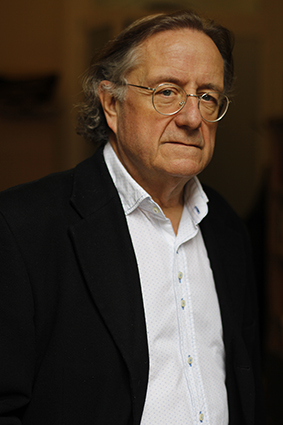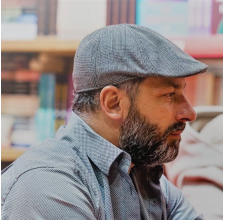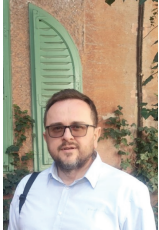Josep Ramoneda was born in Cervera, Spain, in 1949. He is a political philosopher and is very active in the Spanish intellectual debate about current politics. After his academic career of teaching contemporary philosophy (1975-1990), in 1994 he founded the Centre of Contemporary Culture of Barcelona, an important institution in European scale, which he directed until 2011. Presently he publishes La Maleta de Portbou, a journal of humanities and economics, and he is director of the European School of Humanities in Barcelona, founded also by him. He is also director of one of the main editorial groups in Spain.
The prominence of the radical right is turning it into the new ghost haunting the continent: the consecration of the Italian Salvini as the leader of the European extreme right; the rebirth of Farage, leader of the Brexit Party in Great Britain, undermining the Conservative Party and a centuries old two-party system, that despite surviving endless battles (war and colonialism included) may founder due to the break with Europe; and the possibility that the national right of Le Pen, in France, will beat Macron.
Moreover, the European People’s Party that, since the end of the nineties, and with the help of Helmut Kohl, had integrated the broad conservative spectrum and become the main pillar of the Union, now feels threatened by the growth of the extreme right.
Thus, protagonism is monopolized by the most reactionary populism and a dangerous catwalk towards post-democratic authoritarianism. Two years ago, all these parties wanted to leave. Brexit was the model. Now they have seen the weakness of Europe and want to seize it.
European technocrats as always minimize the risk. According to them the extreme right is very much endogamic and therefore the alliances are weak: they will soon clash over conflicts of interest and grievances inscribed in national histories. Maybe. The governance crisis of liberal democracies is not something unfamiliar to the Union. And it is fraught with fractures: economic and social inequalities; the devastating effects of austerity policies that have humiliated entire nations; cultural fractures North / South and East / West, the Mediterranean Sea turned into a Dead Sea that engulfs thousands of people and, along with them, fundamental rights and values; and institutions cut off from the citizens, in the hands of a corporate elite immersed in self-indulgence and disdain.
Feeling involved in European politics is difficult despite the fact that each day it conditions our lives more, but programmed as we are in national identity frameworks it is very difficult for us to make the leap. Without a state and without demos it is impossible to speak of European citizenship. And Europe has neither. This is because it remains only an intergovernmental treaty, with Germany exercising power and France trying to appear.
Mentally, Europe is still far away. The demos is in a process of slow construction because it is very difficult to break the national frameworks on which popular sovereignty is built. And the nation states – the actualization of the potential nation – although they give increasing signs of their impotence and although they have yielded many of their powers to the European instances, remain the natural political space.
“If it were possible to remake the European construction, I would start with culture.” This sentence is attributed to Jean Monnet, one of the founding fathers. And, indeed, those great men fell into a vice of vulgar materialism: the belief in economic determinism ultimately. If the foundations were laid from the economy, the rest — culture, institutions, ideology — would be added. And it was false. Very little has been done to build shared referents, perhaps because it is a land that is too old, full of history, wars and resentment. But it is time to make effective what Balibar calls Machiavelli’s theorem: “Transforming the violence of social conflicts into collective political capacity.” In the end, this was the moral reason that led to founding Europe on the taboo of civil war. But the accompaniment of culture, always present in decisive moments, such as the Renaissance or the Enlightenment, is lacking now. National passions make it difficult to weave a common symbolic space. It is urgent to think Europe.
From El País







